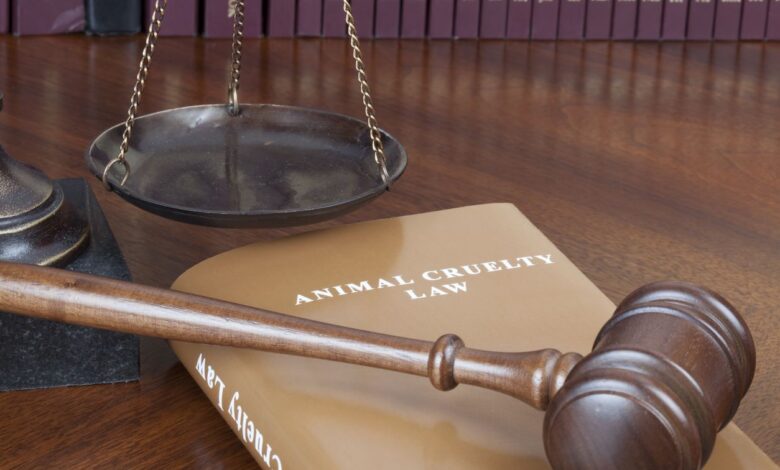Animal Rights and Welfare: Legal Implications and Advocacy

In today’s increasingly conscientious world, the discussion surrounding animal rights and welfare has become a focal point of our society. We, as individuals and as a collective, are becoming more aware of the moral, ethical, and legal responsibilities we bear towards the animals that share our planet. This article explores the legal implications and the advocacy efforts related to animal rights and welfare, delving into the intricacies of the subject matter to provide you with a comprehensive understanding. Access exclusive insights and expert opinions in our comprehensive article: IPS Law UK
The Legal Landscape: Protecting Animal Rights
The Importance of Animal Rights Laws
Animal rights laws are pivotal in safeguarding the well-being and dignity of animals. These laws exist to establish the rights and protections due to animals, ensuring that they are not subjected to unnecessary harm or cruelty. The enforcement of these laws serves as a moral compass for our society, reflecting our commitment to treating animals with respect and empathy.
Key Provisions in Animal Rights Legislation
Animal rights legislation typically encompasses a range of provisions, including but not limited to:
- Prevention of Cruelty: Most laws outline strict regulations regarding the prevention of cruelty towards animals. This includes both domesticated and wild animals.
- Protection from Neglect: Animals have the right to adequate care, including access to food, clean water, shelter, and medical attention when needed.
- Anti-Animal Fighting Laws: Prohibitions against animal fighting, which involves any form of organized animal combat.
- Wildlife Protection: Laws that safeguard the rights of wild animals, regulating hunting, poaching, and habitat destruction.
- Laboratory Animal Welfare: Ensuring the humane treatment of animals used in scientific research.
- Transportation Regulations: Guidelines to prevent inhumane treatment during the transportation of animals.
- Pet Ownership Laws: Regulations surrounding the responsible ownership of pets, such as licensing, spaying/neutering, and leash laws.
Advocating for Animal Rights: The Power of Collective Action
Non-Governmental Organizations (NGOs)
Non-Governmental Organizations (NGOs) play a vital role in advocating for animal rights and welfare. These organizations work tirelessly to raise awareness, provide resources, and lobby for changes in legislation. Some well-known NGOs include:
- The Humane Society of the United States (HSUS): One of the largest and most influential animal protection organizations globally, working on a wide range of issues, from animal cruelty to wildlife protection.
- PETA (People for the Ethical Treatment of Animals): Known for their provocative campaigns, PETA focuses on animal rights issues, such as factory farming and animal testing.
- World Wildlife Fund (WWF): While primarily focused on wildlife conservation, WWF’s work indirectly benefits animal rights by preserving habitats and ecosystems.
Grassroots Activism
The Power of Grassroots Activism
Grassroots activism is a dynamic and influential force that emerges from the ground up, where individuals and local communities take collective action to bring about social, political, or environmental change. It is a reflection of the people’s desire to address issues that matter to them directly, often outside the traditional channels of established institutions.
Grassroots Initiatives: Local Roots, Global Impact
Grassroots activism can encompass a wide range of causes, from environmental conservation and social justice to political reform and community development. What sets it apart is the local nature of its origins, which can lead to a ripple effect that resonates globally.
Key Features of Grassroots Activism
- Community-Centered: Grassroots movements often originate within local communities and address issues that directly affect the people involved. This creates a strong sense of connection and shared purpose.
- Volunteer-Driven: Grassroots activism relies on volunteers who are passionate about a cause. These individuals donate their time and energy, often without monetary compensation.
- Advocacy and Awareness: Grassroots activists engage in advocacy, education, and awareness-raising efforts to mobilize support and influence change. This can involve organizing rallies, creating online campaigns, or producing educational materials.
- Bottom-Up Decision Making: Decisions within grassroots movements are typically made collectively and democratically, with input from all members. This approach ensures inclusivity and shared ownership of the cause.
- Innovation and Adaptability: Grassroots activism often utilizes creative and adaptable strategies to address unique challenges. This can involve using social media, community organizing, or leveraging local resources.
The Ongoing Conversation
The discussion around animal rights and welfare is continually evolving. Advocates and legislators are pushing for stricter laws, improved enforcement, and heightened awareness of the importance of treating animals with kindness and respect. With a global audience and the power of the internet, the conversation surrounding animal rights has never been more accessible and impactful.


